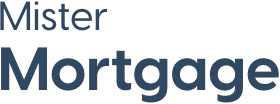
What documents do you need when applying for a mortgage in the Netherlands?
Before a mortgage lender can finance your dream home in the Netherlands, you’ll need to show that you’re able to afford the monthly mortgage payments. Therefore, as a borrower, you need to show the documents to back up the information on your mortgage application.
Also, if you’re applying for a mortgage with another person, you’ll both need to show documents indicating your income, assets, and debts.
1. Proof of Income
The foundation for a Dutch mortgage is your loan-to-income (LtI, see our FAQ). Therefore a mortgage lender wants to know how much you’re earning.
If you’re permanently employed in the Netherlands, you need the following documents:
1. Your most recent payslips ( no older than two months)
2. A statement about your employment ( no older than two months). Your HR department helps you to get a statement.
3. Your contract of employment.
4. The personal income tax returns for the past year.
5. The confirmation letter regarding a 30% ruling ( tax advantage for expats)
If you’re self-employed, you need the following documents:
1. Corporate tax returns for the past three years.*
2. The personal income tax returns for the past three years.*
3. The annual figures for the past three years.*
4. The forecast for the current year.
5. The extract from the Dutch Chamber of Commerce.
6. The shareholder’s agreement.
* When your company has no 3 years yet, no problem. Contact us to discuss your options.
2. Proof of Assets
The maximum Loan-to-Value (LtV, see our FAQ) is 100% and the average closing costs are around 5% of the value of your home. So you need assets to pay for the closing costs.
Mortgage lenders ask for bank statements for your checking and savings accounts. They will verify the bank statements against the income you’ve provided and they aren’t looking to analyze anything else.
Also, you need to document and verify any other assets you may have, including investment accounts or retirement accounts, or another real estate you already own.
3. Proof of Debt
Mortgage lenders run a check to learn about your past and current debts via Stichting Bureau Krediet Registratie (BKR). They check the following credits:
1. Private lease car.
2. Smartphone subscriptions.
3. Ground Lease.
4. Credit limits.
5. Credit cards.
6. Alimony payments.
7. Student debts.
8. Other loans.
We advise you to prepare the documents if you have financial obligations. We need to use the information about your debts to decrease the Loan-to-Income ratio.
4. Documents about the property
Mortgage lenders want to know what they are going to finance so they will also ask for documents about the property. You need the following:
1. The fee of the realtor.
2. The purchase agreement.
3. The valuation report.
4. The specification of your renovation.
5. The structural report.
Other documents
What would you want to know if someone wants to have a loan from you of a couple of hundred thousand euros? You want to know who will receive your money. Therefore we need to make a copy of your passport and your residence permit.
You need an overview of:
1. Your pension: mijnpensioenoverzicht which you can download from http://www.mijnpensioenoverzicht.nl/ by logging in with your DigiD.
2. Your employment: arbeidsverleden which you can download from http://www.uwv.nl/ by logging in with your DigiD.
In conclusion, this is not the entire list of documents needed and sometimes a document doesn’t apply to your personal situation. You can always contact us to talk about your financial possibilities so you can receive a personalized list of documents to apply for a mortgage. See what you know and where you can improve your mortgage approach so you make an informed decision about the terms of your mortgage.
Schedule a complimentary introductory call with our mortgage specialists. We specialize in mortgages for expats and are dedicated to navigating you through the home-buying process.
-
Access to a trusted network.
-
Highly competitive rates and flexible terms.
-
Guidance through the entire mortgage process.
-
English translations of bank documents are shared.

- 100% Independent Advice




